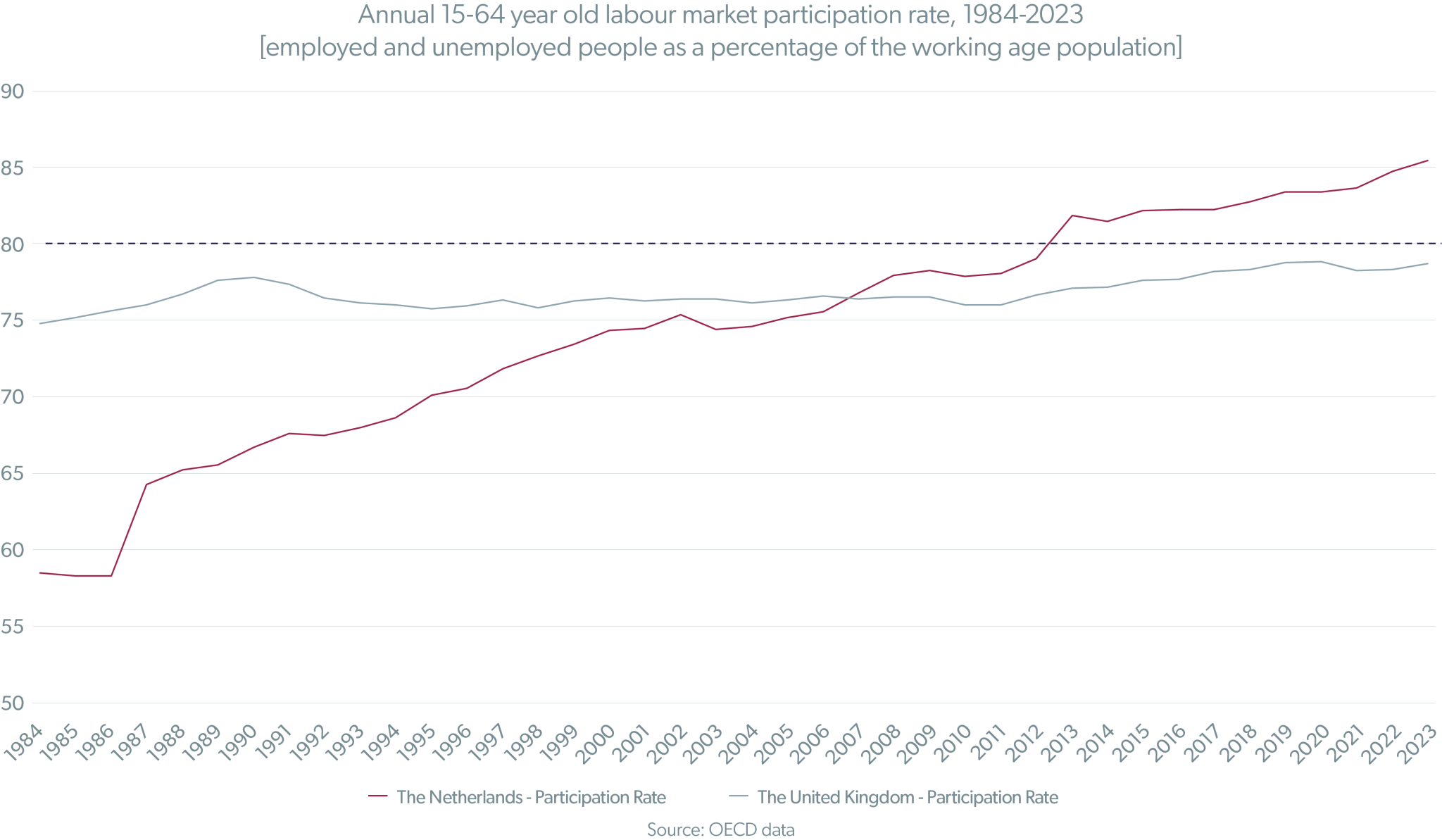Commenting on the new employment White Paper, Ed Davies, Policy Director at the Centre for Social Justice, said:
Like the White Star Line’s Titanic, this White Paper does little to steer the good ship Brittania away from the welfare iceberg in its path. With the cost of health and disability benefits forecast to be as much as £100 billion by 2030, the contents of the White Paper – and its seemingly endless reviews and consultations – risk making little difference.
We need urgent and radical action to tackle the crisis of economic inactivity which threatens our economy. In particular, we need to learn from the Netherlands which unlike the UK has broken through the 80 per cent employment barrier and been three times more effective at reducing economic inactivity. The Secretary of State for Work and Pensions should drastically accelerate plans to devolve the existing £6 billion employment support and adult education budget to the regions, away from Whitehall. Although welcome, the £240 million so-called trailblazer programme is nowhere near enough, fast enough.
Regarding specific items in the White Paper:
1. The government target of 80 per cent employment rate is unlikely to be achieved without far more radical action.

Analysis of OECD data undertaken by the CSJ shows the Netherlands and UK participation rate for those in work and actively seeking work, which drives the employment rate that the Government aspires to be at 80 per cent. This shows the Dutch participation rate grew 27 percentage points over the past 4 decades, while the UK’s only increased 4 percentage points. The latest figures show the Netherlands participation rate at 86 per cent compared to the UK at 79 per cent. The UK’s participation rate fell away during the Covid era and is still below the pre pandemic high.
2. Youth Guarantee and threat to remove benefits
The Secretary of State for Work and Pensions, has said “we will not allow young people not to be in education, employment or training”, with the White Paper threatening tougher benefit rules for young people not taking up training or education.
Yet the tightening of benefit rules can only apply to unemployed young people, not the economically inactive – which make up the overwhelming majority of young people not in employment, education or training (NEETs). Around 6 in 10 16-24 year old NEETs are economically inactive – amounting to over half a million people (552,000). Instead, we need specialist employment support and training opportunities for those with a disability or health problem, alongside policies to improve support for sick and disabled people from employers.
The White Paper’s proposed ‘Youth Guarantee’ with 8 youth trailblazers areas costing £45 million funding will barely scratch the surface.
3. Universal Support
The most significant programme for tackling inactivity, Universal Support, has been delayed until next year and renamed by the government as Connect to Work. This scheme was championed by the CSJ and announced last year by the then-government with funding for 100,000 places per year. The White Paper says Connect to Work will have funding from a new Get Britain Working Fund but this is not new money, it is rebranding the funding announced last year. The document is clear that the scheme will follow the same planned ‘place, train and maintain’ model and support the same number of people. While it is welcome the government are maintaining these plans, these are simply new names for existing interventions and the only change of substance so far has been the decision to delay the rollout of this vital scheme.
